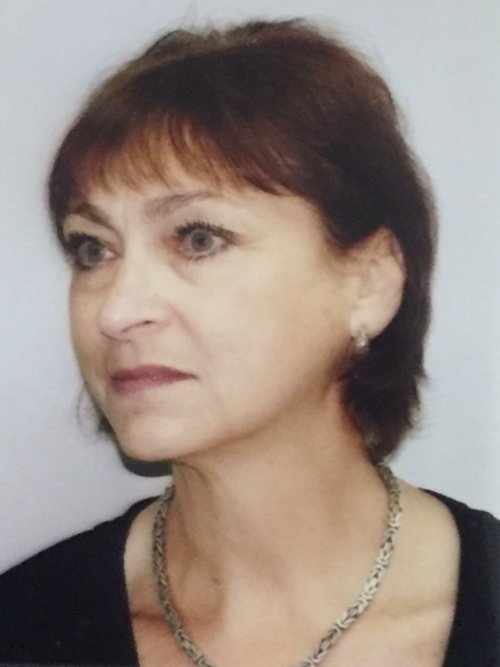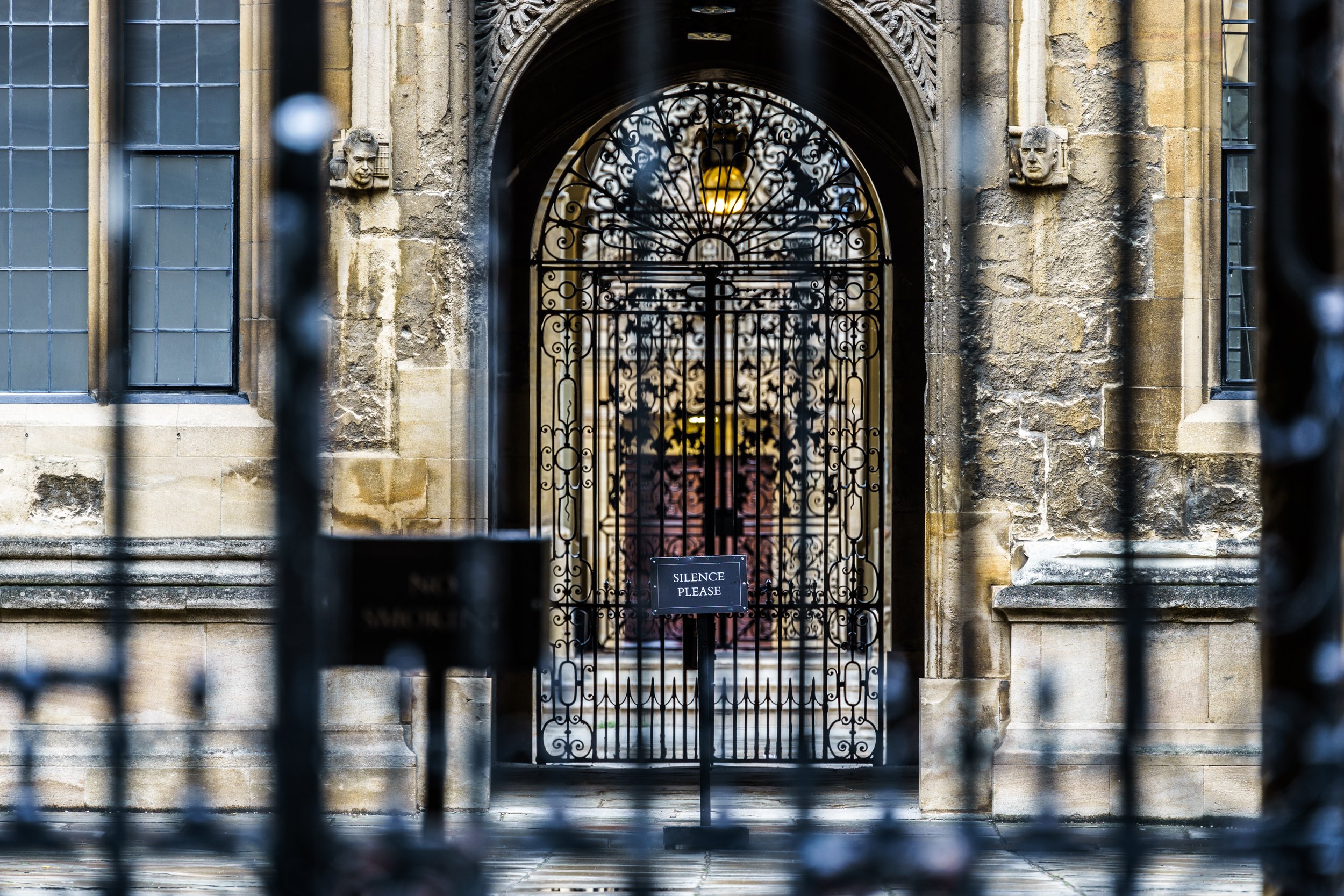
Silence Will Not Protect Us: Sexual Violence and Institutional Power in Academia
-
All are welcome, including precariously employed faculty, lecturers, full professors, unemployed and underemployed scholars, community-based scholars and artists, graduate and undergraduate students and university staff.
-
The symposium is February 25th, 9:30am-4:30pm.
On February 26th there will be workshops for students only. -
Public health permitting, the symposium will have a hybrid format physically hosted in Oxford.
Program details
Welcome and opening remarks: 9:15-9:45
First Panel: 9:45-10:45
Navigating Silence(s): Personal and Political Histories of Harassment and Activism
“Narrative is radical, creating us at the very moment it is being created."
Toni Morrison, Nobel Lecture, 1993
“The story of what happens to a complaint is often the same story complaints are about: who controls the situation, who controls the narrative.”
Sara Ahmed, Complaint!, 2021
“Caring for myself is not self-indulgence, it is self-preservation, and that is an act of political warfare.”
Audre Lorde, A Burst of Light, 1988
“If you are silent about your pain, they’ll kill you and say you enjoyed it.”
Zora Neal Hurston, Their Eyes Were Watching God, 1937
The first panel contextualizes the symposium in regards to a selection of wider histories of anti-sexual violence activism and resistance. As part of “making the personal political,” it offers a platform for panellists to speak about experiences that have informed their activism and research. From navigating ambiguous boundaries and grey areas like the on campus-off campus divide and humour — which is routinely employed by perpetrators and understood by institutions as plausible deniability of sexual violence under the guise of a joke — to excavating the role of personal experience and institutional memory in resisting sexual misconduct and racial harassment, this panel will both frame conversations about power and violence broadly within history and specifically within individual lived experiences. Straddling the border of the personal and political, panelists will also address the question of how do we practice self-care when our personal experiences, research, and activism overlap.
-
Susuana Amoah
Susuana Amoah is a London-born, Brighton-based cultural activist, curator and interdisciplinary artist. Susuana is currently a PhD researcher at Goldsmiths, University of London, where she is researching decolonial curatorial practices in contemporary art galleries. She is passionate about visual activism & education for transformative social change. Previously, Susuana was the NUS National Women’s Officer. During her time as student officer, Susuana founded the I Heart Consent campaign, lobbied for government action to tackle violence against women on campus and campaigned to increase the numbers and the support for women of colour in student and feminist activism.
-

Dr Nicole Gipson
Nicole Gipson is a French American early career researcher who completed her PhD in American Studies at the University of Manchester in 2020. She is an Emerging Scholar in the Global Urban History Project (GUHP) (2021-2022). Her research focuses on race, gender and social inequality in urban housing, homelessness, and urban poverty in the twentieth-century United States. Dr Gipson has spoken about the challenges of PGR, ECR, and BIPOC scholars on podcasts such as Not Safe For Publication and USSOcast. She is an active member of the Race, Roots, and Resistance Collective who you can also find on Twitter.
-
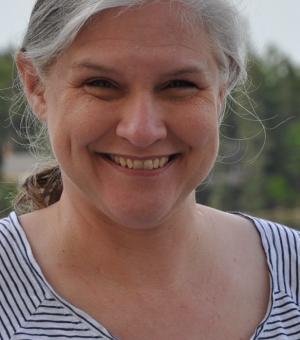
Dr Mara Keire
Mara Keire is a Senior Research Fellow at the Rothermere American Institute, University of Oxford. Dr. Keire is the author of For Business and Pleasure: Red-Light Districts and the Regulation of Vice in the United States, 1890-1933 (2010). She is currently working on new book, Under the Boardwalk: Rape in New York, 1900-1930. A sexual assault survivor, Dr. Keire sued the man who raped her under New York's Child Victim Act. Her account, "'In the Aftermath: Reflections by Survivors of Gender-Based Violence", was published by Tasteful Rude (30 November 2021).
Second Panel: 10:45-11:45
Enforcing Silence: Complaint Processes, Institutional Betrayal, and Retaliation
“Tools introduced to redress power relations can be used by those who benefit from power relations.”
Sara Ahmed, Complaint!, 2021
The panel will address the complaints process, especially how institutional policies and procedures punish people who come forward with reports of abuse. Beyond policies and procedures, we hope to explore how cultures within higher education can abet harassment and misconduct, creating obstacles for complainants and advocates. We are keen to examine how confidentiality, NDAs and retaliation all contribute to cultures of silence that protect predators.
-

Dr Anna Bull
Anna Bull is Lecturer in Education and Social Justice at the University of York, and co-director of The 1752 Group, a research and campaigning organisation working to address staff sexual misconduct in higher education. Anna was an academic advisor to the National Union of Students for their report Power in the Academy: staff sexual misconduct in UK higher education and was lead author on The 1752 Group’s report Silencing Students: institutional responses to staff sexual misconduct in higher education. Most recently she has co-authored The 1752 Group and McAllister Olivarius' Sector Guidance to address staff sexual misconduct in UK higher education.
-

Georgina Calvert-Lee
A barrister with a background in UK and US civil litigation, Georgina leads the UK employment and equality practice at McAllister Olivarius. Her practice focuses on discrimination, harassment and sexual violence law in employment, education, services and online.
Georgina has negotiated settlements for individuals and employers in many contexts and has become an advocate against the over-use of confidentiality clauses. She secures agreements without such a clause where the individual is opposed to it, and in some cases, the employer has then publicly eschewed the use of confidentiality clauses in settlements relating to harassment and bullying going forward. University College London is one notable example of this.
Outside the employment context, Georgina brought the first English High Court claim for intimate image abuse, on behalf of YouTube star, Chrissy Chambers, ending in payment of ‘substantial damages’ and transfer of copyright. More recently, she won a high-profile race discrimination claim on behalf of a British Sikh couple denied the opportunity to adopt. She has also brought multiple cases on behalf of survivors of sexual harassment and violence in higher education, arguing that university complaints processes, including their routine reliance on confidentiality, are discriminatory. With The 1752 Group, she co-authored Sector Guidance to Address Staff Sexual Misconduct in UK Higher Education, aiming to expose and resolve these inequalities.
-

Dr Adrija Dey
Adrija Dey is currently a Future Leaders Fellow at the University of Westminster. She was previously a British Academy post-doctoral research fellow at the Department of Development Studies, SOAS, where her project was titled “Sexual and Gender Based Violence (SGBV) in Indian Universities: A Study of Campus Life, Student Activism, and Institutional Responses.” She conducts her research with a focus on the Global South and through a decolonial and intersectional feminist lens. She has been a vocal campaigner against sexual misconduct in Higher Education and currently is the Director of International Knowledge Exchange at the 1752 group and part of student led campaigns such as Account for This and Alliance of Women in Academia.
Coffee break: 11:45-12:00
First Conversation: 12:00-12:45
Senior Scholars, Power, and Solidarity
“Diversity as a door deal: you might have a door opened for you on the condition that you shut that door quickly behind you, if you shut the door on others like you. And shut that door can mean not only doing what you can to stop other from getting in but also stopping thinking of yourself as one of the others.”
Sara Ahmed, Complaint!, 2021
“No insurgent intellectuals in this society escape the pressure to conform. This is especially true of those who work within hierarchical institutions, where rewards and benefits are awarded in relation to service rendered. Irrespective of our locations, however, we are all vulnerable. We can all be had, co-opted, bought. There is no special grace to rescue any of us. There is only a constant struggle.”
bell hooks, “Critical Reflections”, Artforum, 1994
In this conversation, speakers will discuss how their respective activism has evolved through the course of their careers and impart knowledge they have acquired through their advocacy in academia. It will cover the phenomena of fracturing whereby women and other historically marginalised people who rise within the hierarchies of higher education are not supportive (or are even hostile) to calls for change. The conversation will contextualize sexual harassment and violence with regards to a continuum of abuse in academic culture that manifests in celebrity networks and research inequalities that contribute lay the foundations for institutional silencing.
-

Professor Kalwant Bhopal
Kalwant Bhopal is Professor of Education and Social Justice at Birmingham University. Kalwant’s research focuses on the achievements and experiences of minority ethnic groups in education. She has conducted research on exploring discourses of identity and intersectionality examining the lives of Black minority ethnic groups as well as examining the marginal position of Gypsies and Travellers. Her research specifically explores how processes of racism, exclusion and marginalisation operate in predominantly White spaces with a focus on social justice and inclusion.
-
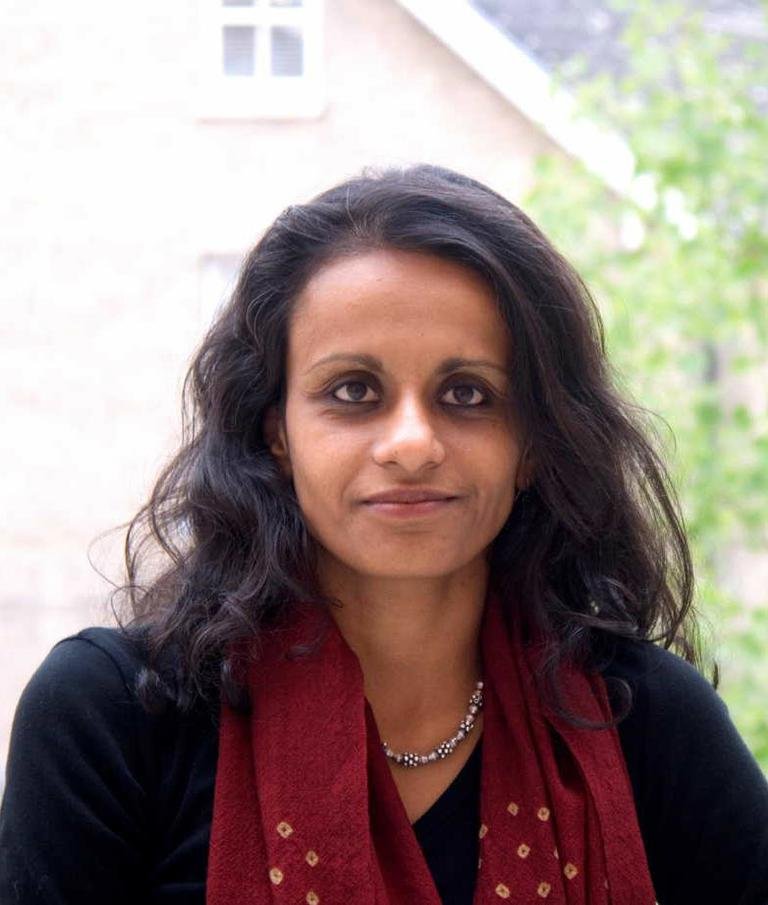
Professor Priyamvada Gopal
Priyamvada Gopal is Professor of Postcolonial Studies, University of Cambridge.
Lunch: 12:45-13:45
Third Panel: 13:45-14:45
Transforming Silences: Language and Collective Action
“It is in collectivities that we find reservoirs of hope and optimism.”
Angela Y. Davis, Freedom Is a Constant Struggle, 2015
“If complaint collectives are formed to keep a complaint going, complaint collectives can keep us going.”
Sara Ahmed, Complaint!, 2021
“Collectivity was a way to share the cost of complaint. Rather than each of us being on her own, we would stand together.”
Leila Whitley, Tiffany Page and Alice Corble, with Heidi Hasbrouck, Chryssa Sdrolia and others, Complaint!, 2021
In this panel, speakers will reformulate individual experiences of misconduct into a collective call for systemic change in institutions that have neglected their duty of care. Beyond making the “personal political,” it explores the avenues that have been used to speak out against sexual harassment in online and offline spaces: library systems; the courts; and the press, while also rethinking strategies for collective action. In this vein, the panel moves beyond the British context to engage broader insight gained from global social movement and university politics, such as those in India.
-

Professor Sundari Anitha
Sundari Anitha is Professor of Gender, Violence and Work at University of Lincoln. Her research spans the problem of violence against women and girls (VAWG) in the UK, US and India; prevention, protection and criminal justice responses to this problem; the politics of intersectionality and the connections between violence within homes and outside (race, ethnicity, class, gender, and migration); sexual violence including everyday forms of sexual harassment in online and offline spaces; and gender-based violence in university communities. Linked to this research is her ongoing interest in issues of gender, race and ethnicity in employment relations.
-

Dr Alice Corble
Alice Corble is a library educator, scholar and trade union activist working on knowledge justice projects. She completed her PhD in Sociology at Goldsmiths in 2019 on the cultural politics of libraries in times of crisis. Her time at Goldsmiths Centre for Cultural Studies led her to form a feminist complaint collective with peers, about which she has co-written in Sara Ahmed’s recent book Complaint! Alice currently supervises Academic Services in Learning and Teaching Support at University of Sussex Library, where she is developing decolonial approaches to working with students and academics via library collections and critical pedagogy. She is Learning Representative on the executive committee for the Sussex branch of University College Union (UCU), where co-organises grassroots solidarity groups on anti-racism and trans and non-binary inclusion. Alice is also a founding member and Editorial Coordinating Manager of the Critical Race Theory Collective, an international coalition of library and archival practitioners and scholar activists addressing race and intersecting inequalities in these sectors.
-
Deborah Davies
Deborah Davies is an investigative journalist who worked on the Al Jazeera podcast series, “Degrees of Abuse”. Two of the six episodes and one video focused on cases at Oxford. Deborah has made many TV documentaries about sexual abuse and rape and the failings in how the UK police and criminal justice system deal with these crimes. She is a multi-award winning journalist with Al Jazeera’s Investigative Unit. She’s reported from conflict zones around the world and frequently gained access to break exclusive stories, ranging from the police death squads in Iraq to the sexual abuse of young footballers in Britain.
Second Conversation: 14:45-15:30
Supporting One Another as Students and Early Career Scholars
“There is no single turning point which marked the shift from working alongside one another as peers and fellow students, toward friendship, toward collectivity. Instead, we were a collective long before we realized it.”
Sara Ahmed, Complaint!, 2021
In this conversation, speakers will elaborate on how students and early career scholars can support one another through the trying processes of resisting, and fighting to change, abusive institutional cultures. Despite occupying some of the most vulnerable and marginalised places in academia, the onus of changing institutional culture too often falls on those with the least robust support networks. As such, speakers will incorporate their own experiences to address the ways in which we can give, and receive support, from within our own peer groups to create a collective that collaborates for meaningful change but also acts as a comfort and support network to deal with the hostility, burnout, and compassion fatigue that accompany activism.
-
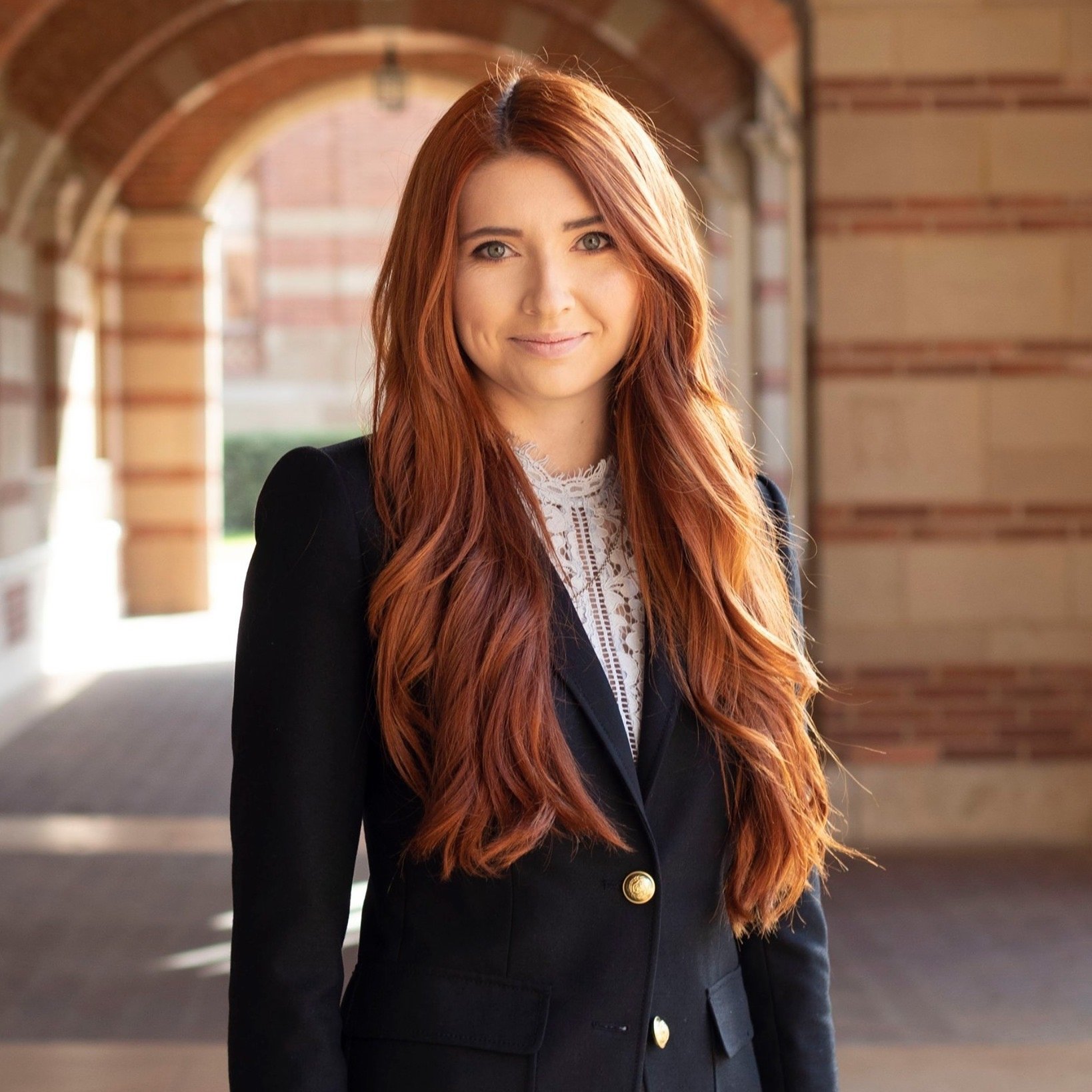
Kaelyn Grace Apple
Kaelyn Grace Apple is a PhD Student in History & African American Studies at Yale University as well as the Founder of Accepted Consulting & TheRedHeadAcademic, and the Co-Founder of Accepted Society. Kaelyn is dedicated to ongoing studies of the law of slavery and developing public history content on social media platforms such as YouTube, Instagram and TikTok in order to break the barrier between academia and public audiences. Kaelyn began her education in community college and has since acquired a BA in History & African American Studies from UCLA and an MSt in US History from the University of Oxford. In 2019, Kaelyn, alongside Mia Liyanage, and several Oxford tutors filed a formal sexual harassment complaint against Professor Peter Thompson. Since, Kaelyn has spoken publicly about the abuses she and other Oxford students have faced and continues to advocate for safe and equitable spaces in higher education for all students.
-

Dr Nicole Gipson
Nicole Gipson is a French American early career researcher who completed her PhD in American Studies at the University of Manchester in 2020. She is an Emerging Scholar in the Global Urban History Project (GUHP) (2021-2022). Her research focuses on race, gender and social inequality in urban housing, homelessness, and urban poverty in the twentieth-century United States. Dr Gipson has spoken about the challenges of PGR, ECR, and BIPOC scholars on podcasts such as Not Safe For Publication and USSOcast. She is an active member of the Race, Roots, and Resistance Collective who you can also find on Twitter.
-

Harriet Lester
Harriet Lester is a PhD biochemistry student at Oxford university and the founder of the social enterprise Vitaegum. In 2021 Harriet was interviewed by Al Jazeera for the 'degrees of abuse documentary about sexual abuse in higher education'. Harriet has been vocal in calling out the mistreatment she received by her college as a victim of sexual assault and the mishandling of her report, which resulted in no disciplinary action taken against the perpetrator.
-

Mia Liyanage
Mia Liyanage is a decolonisation advocate, anti-racism practitioner and Race Equality Charter Officer at Goldsmiths, University of London. She is the author of Miseducation: decolonising curricula, culture and pedagogy in UK universities from the Higher Education Policy Institute (HEPI). Mia is a former student activist; she was Co-Chair of Common Ground Oxford, a student movement challenging racism, classism and the legacy of colonialism in both the University and the city of Oxford. Mia holds a BA in History and a master's in US History from the University of Oxford, and specialises in queer history. During her time at Oxford, Mia submitted a formal complaint against lecturer Peter Thompson for sexual harassment, and later worked with Al Jazeera to make her story public through the 2021 “Degrees of Abuse” investigation.
Coffee break with snacks: 15:30-15:45
Fourth Panel: 15:45-17:00
Refusing Reform: Enacting Cultures of Radical Change in Academia
“Imagine otherwise. Remake the world. Some of us have never had any other choice.”
Christina Sharpe, “Lose Your Kin,” 2016
“To refuse what has come to be is to fight to be.”
Sara Ahmed, Complaint!, 2021
“There’s nothing new
under the sun,
but there are new suns.”
Octavia Butler, Parable of the Trickster, Unpublished
A panellist-guided discussion with audience members about how we, as a collective, can reject the bureaucratic heuristic of reform which privileges incremental changes to policies (which protect institutions) at the expense of people and communities. Beyond mere calls for reform, it aspires to explore new agendas for transformation and alternative frameworks that avoid perpetuating the very power disparities that precipitate harassment and misconduct.
-

Mia Liyanage
Mia Liyanage is a decolonisation advocate, anti-racism practitioner and Race Equality Charter Officer at Goldsmiths, University of London. She is the author of Miseducation: decolonising curricula, culture and pedagogy in UK universities from the Higher Education Policy Institute (HEPI). Mia is a former student activist; she was Co-Chair of Common Ground Oxford, a student movement challenging racism, classism and the legacy of colonialism in both the University and the city of Oxford. Mia holds a BA in History and a master's in US History from the University of Oxford, and specialises in queer history. During her time at Oxford, Mia submitted a formal complaint against lecturer Peter Thompson for sexual harassment, and later worked with Al Jazeera to make her story public through the 2021 “Degrees of Abuse” investigation.
-

Professor Alison Phipps
Alison Phipps is professor of sociology at Newcastle University in the UK. She is a political sociologist and scholar of gender with interests in feminist theory and politics, the body and violence and neoliberal racial capitalism. She has been an activist in the movement against sexual violence for over fifteen years, and co-authored the groundbreaking NUS report ’That’s What She Said’ (2014), focused on ‘lad culture’ and sexual violence at universities. More recently, she co-founded the Changing University Cultures collective. She is author of Me, Not You: the trouble with mainstream feminism (Manchester University Press, 2020).
Reception to Follow
Woven Ink
Isolde Godfrey & Jess Harvey
Woven Ink is a small, independent animation and visual minutes studio, working with socially conscious and progressive organisations. Their Vision is to see under, or untold stories, shared and amplified, beautifully, sensitively and authentically. They celebrate and love to work with animation and illustration styles that are handmade, real and tactile; as they find this aesthetic compliments and speaks more authentically to the human focus of their work. Woven Ink was set up with a want, and need, to make a positive impact within our society and communities, even if it’s small ripples... it's what fuels the love for the work that they do.
Hosted in Flora Anderson Hall
Somerville College
Oxford, OX2 6HD

